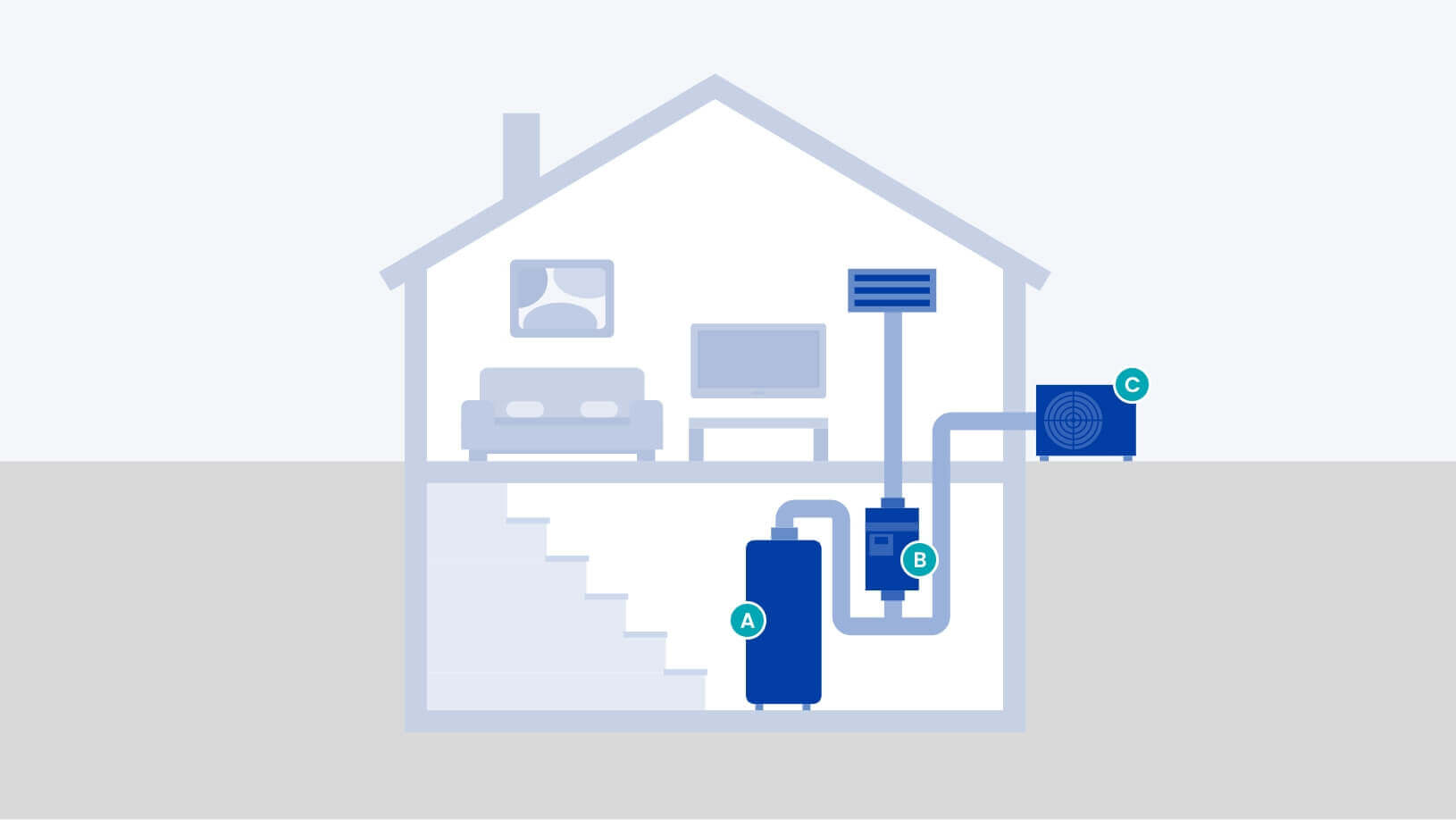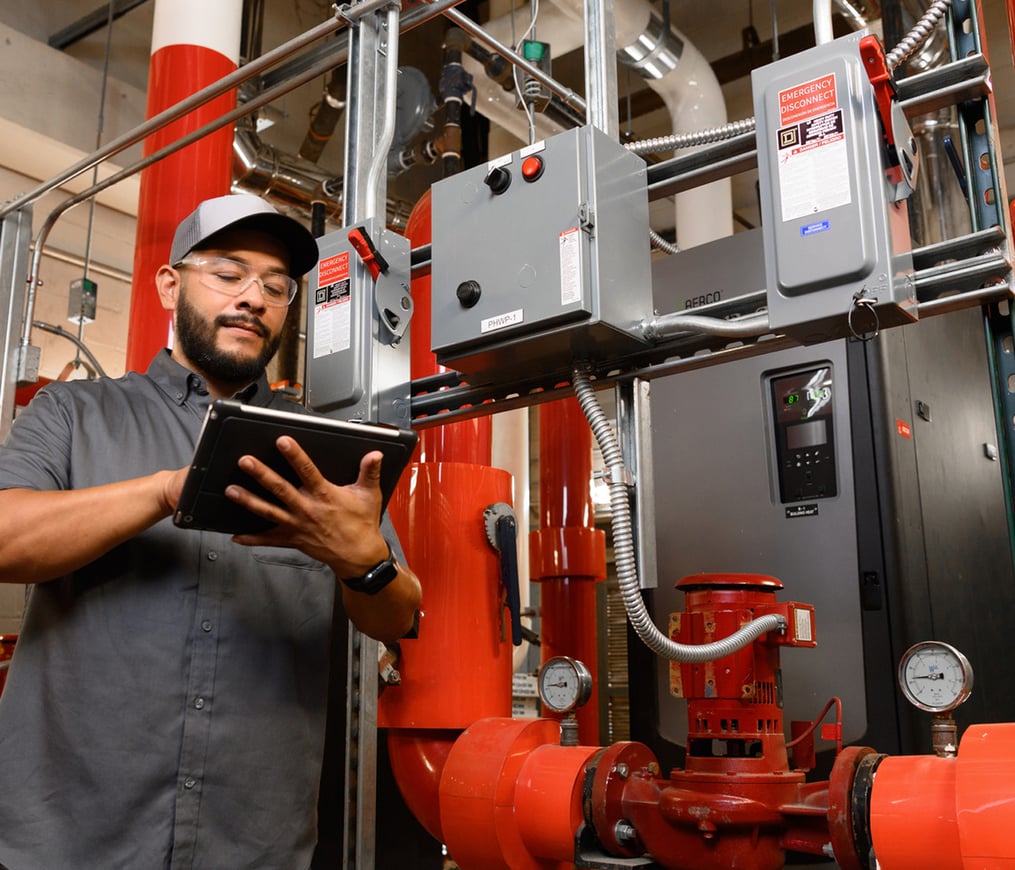A Thorough Take A Look At Cooling And Heating Providers and Their Influence On Energy Performance and Price Cost Savings
The role of heating and cooling solutions in boosting energy effectiveness and attaining cost financial savings is extra essential than ever, as services and homeowners look for sustainable solutions in a significantly eco-conscious globe. With technological developments like clever thermostats and high-efficiency components, the capacity for optimizing system performance is large. Yet, real influence of these developments depends greatly on routine upkeep and proactive issue administration. As we discover the complex relationship in between a/c systems and functional costs, consisting of the shift in the direction of eco pleasant alternatives, the concern occurs: exactly how can these approaches be properly applied to optimize both financial and eco-friendly benefits?

Relevance of Heating And Cooling Solutions
heating and cooling systems are an essential element of modern-day buildings, playing an essential function in maintaining comfortable and healthy and balanced interior settings. These systems, including ventilation, home heating, and air conditioning, are essential for managing temperature level, humidity, and air top quality, therefore making certain the wellness of residents. Reliable cooling and heating systems add substantially to producing an optimal interior climate, which is vital for both commercial and residential spaces.
In industrial buildings, cooling and heating systems are integral to supplying a effective and risk-free setting. By managing interior environment conditions, these systems assist stop the development of mold and mildew and the spread of air-borne contaminants, therefore safeguarding the health and wellness of employees and consumers. In addition, in property setups, a/c systems boost living conditions by using consistent thermal comfort and boosting indoor air high quality, which is essential for overall health and wellness.
Furthermore, the layout and upkeep of heating and cooling systems have a straight effect on energy intake and operational expenses. Effectively made and kept systems can dramatically reduce energy use, causing reduced utility expenses and a smaller sized carbon impact. The performance of these systems hence plays an important duty in advertising sustainability and power preservation within structures, highlighting their relevance in the modern architectural landscape.
Breakthroughs in HVAC Technology
Technology in HVAC technology is changing the means structures manage interior climates, ushering in a new era of efficiency and control. Recent developments have concentrated on enhancing power usage while enhancing customer convenience. One notable development is the integration of clever thermostats, which make use of artificial knowledge to find out tenancy patterns and adjust temperatures as necessary, reducing unneeded power use.
Variable Refrigerant Circulation (VRF) systems stand for an additional substantial jump onward. These systems allow for accurate temperature level control in various zones of a building, boosting convenience and reducing power waste. VRF innovation is especially valuable for huge industrial spaces, offering flexibility and scalability.
In addition, the advent of Internet of Things (IoT) tools has changed cooling and heating systems into interconnected networks efficient in real-time information collection and analysis. This connectivity makes it possible for predictive maintenance, ensuring systems operate at peak performance and lessening unexpected downtime.
In addition, developments in products and design, such as making use of high-efficiency coils and compressors, have boosted general system performance - Heating Contractor. The fostering of eco-friendly refrigerants likewise emphasizes the industry's commitment to sustainability
These technological technologies are critical in lowering functional costs and ecological effect, establishing brand-new standards for building climate monitoring.
Heating And Cooling Upkeep and Performance
Ensuring optimum performance of heating and cooling systems extends past technological advancements; it additionally rests on reliable maintenance techniques. Routine upkeep is critical for maintaining performance, lowering energy usage, and expanding the lifetime of HVAC systems. The key objective is to guarantee that all parts operate at their peak capacity, thus decreasing power waste and preserving regular indoor convenience levels.
Routine maintenance jobs, such as cleansing or replacing air filters, inspecting cooling agent levels, and inspecting ductwork for leaks, are important for protecting against unneeded stress on the system. Dirty or clogged filters can obstruct air flow, triggering the system to function tougher and take in more power. Also, poor cooling agent degrees can reduce cooling efficiency, bring about higher functional expenses.
Additionally, routine inspections by certified professionals can identify potential issues prior to they escalate into costly repair services or system failings. These assessments commonly consist of checking electric connections, calibrating thermostats, and making certain the general stability of the HVAC system. By addressing minor issues early, homeowners and businesses can prevent unforeseen malfunctions and improve energy efficiency.
Cost-Effective HVAC Solutions
For those wanting to obtain one of home air conditioning installation the most out of their air, air flow, and heating conditioning systems without damaging the bank, checking out economical a/c important site remedies can make a substantial distinction. One instant step is to buy programmable thermostats, which enable individuals to set details temperature levels for different times of the day, optimizing power usage and decreasing unnecessary consumption. By automating temperature level changes, home owners can attain substantial cost savings on energy expenses.
Routine upkeep is an additional critical component of cost-effective heating and cooling administration. Guaranteeing that filters are cleaned up or replaced consistently, ductwork is sealed, and units are serviced by specialists can protect against pricey repair services and improve system durability. Preventive upkeep not just preserves system efficiency yet additionally assists in preventing unexpected failures that can bring about costly emergency repairs.
In addition, retrofitting existing systems with energy-efficient elements, such as variable speed electric motors or high-efficiency compressors, can be a sensible investment. These upgrades improve operational performance, decrease energy usage, and can commonly be applied at a fraction of the cost of a complete system substitute.
Ecological Influence Decrease
Lowering the environmental impact of cooling and heating systems is crucial in today's search of sustainable living. Heating and cooling systems are considerable factors to energy intake, representing virtually 40% of power use in commercial structures. This power need commonly counts on fossil fuels, leading to greenhouse gas exhausts and environmental deterioration. Transitioning to extra efficient systems, such as those making use of renewable energy resources, can significantly alleviate these influences.
Technical advancements in heating and cooling style and operation, including the integration of smart thermostats and energy-efficient heatpump, are critical in reducing carbon footprints. These innovations enable optimized power usage, minimizing wastage and enhancing overall system performance. Furthermore, embracing routine upkeep techniques ensures a/c systems operate at peak effectiveness, more cutting unneeded energy consumption.
Moreover, using eco-friendly cooling agents is vital, as typical cooling agents, like CFCs and HCFCs, have been phased out because of their ozone-depleting homes. Modern options, such as hydrofluoroolefins (HFOs), offer minimized environmental threats, lining up with global ecological protocols. By welcoming these lasting techniques, a/c services can play a transformative duty in decreasing ecological effects, promoting power efficiency, and web cultivating a more sustainable future.
Verdict

Furthermore, the design and upkeep of Heating and cooling systems have a direct effect on power consumption and functional prices. Routine maintenance is crucial for sustaining effectiveness, minimizing power usage, and extending the life span of HVAC systems. A/c systems are considerable contributors to energy usage, accounting for almost 40% of energy use in business buildings. Furthermore, embracing routine maintenance methods makes sure Cooling and heating systems run at peak performance, more cutting unneeded energy consumption.
The transition to environmentally friendly Cooling and heating systems further promotes and reduces operational prices sustainability. (Heating Contractor)